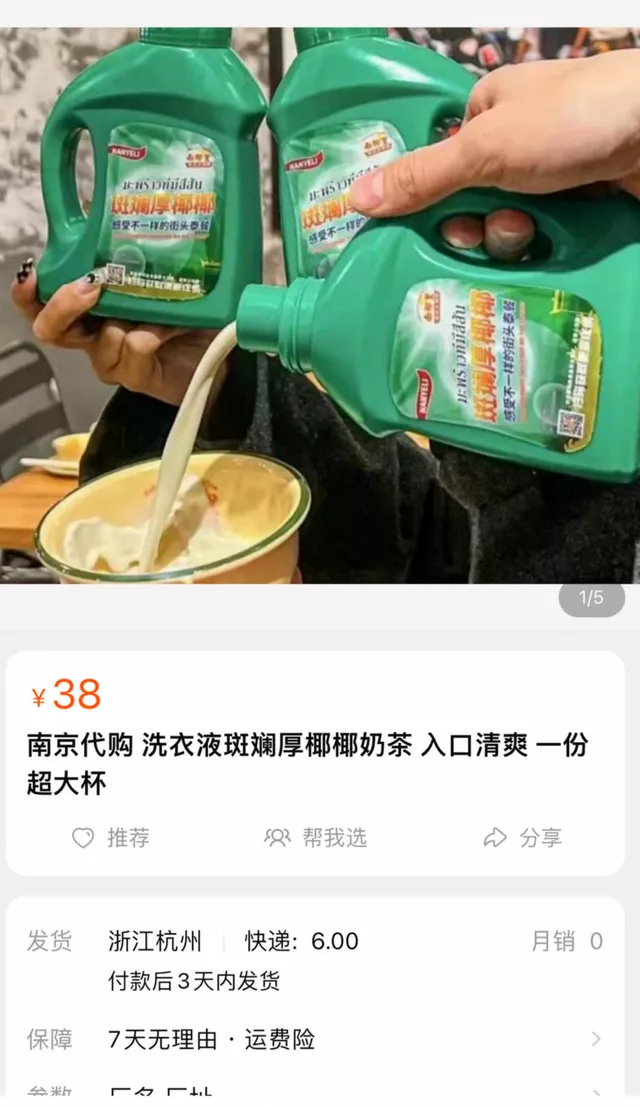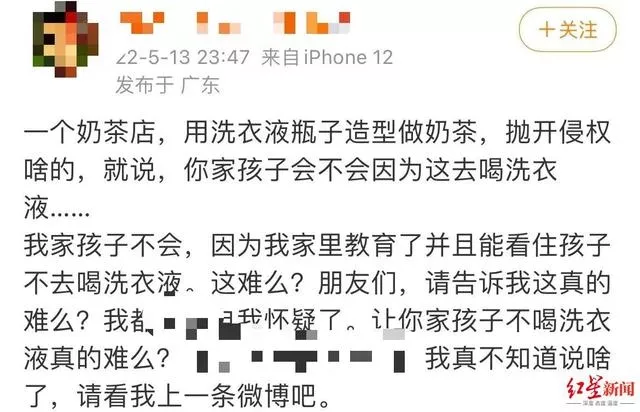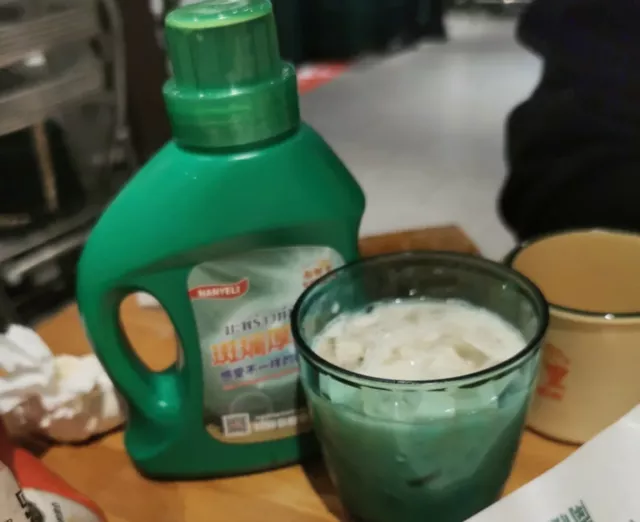In recent years, all kinds of milk tea have been flying all over the world. In order to attract consumers, many manufacturers and stores have hollowed out their minds and even embarked on crooked ways. Recently, a kind of milk tea in the shape of detergent bottle has become popular on the Internet. Many people think it is novel, but some netizens have questioned whether it will mislead children.
It is reported that this special milk tea originated in Nanjing. It is a Thai milk tea product launched by a restaurant called nanyeli, 18 yuan per barrel (500ml) , which meets the curiosity hunting psychology of young people and has been imitated by some other businesses. Since then, it has also appeared in Chongqing, Guangdong and other places, and there are even purchasing agents on the store platform.

In this regard, some netizens believe that not all new ideas are worth advocating, and innovation should also have a bottom line. The shape is similar to laundry detergent. Will it mislead children to eat real laundry detergent by mistake?
Some netizens said that "there is no standard in design, but there is a moral bottom line". More netizens worried that "when children have no judgment, they will feel that the washing liquid is delicious" and "it will be troublesome if pesticide bottles come out in the future"
A netizen who claims to be a coffee designer is even more outspoken: "we must be good for the design, not random design without basis."**

Some media contacted the staff of Nanjing nanyeli Thai style food stall Xinjiekou store and received a response that up to now, they have not received any complaints, nor have they heard of children eating laundry detergent by mistake because of the product.
However, some lawyers believe that the shape of milk tea container is very similar to that of washing liquid, and there is a fundamental distinction between edible and inedible, so there should be warning signs or warning instructions in Chinese according to law.
According to the first paragraph of Article 20 of the law on the protection of the rights and interests of consumers, the information provided by business operators to consumers about the quality, performance, purpose and validity period of goods or services shall be true and comprehensive, and shall not make false or misleading publicity.
